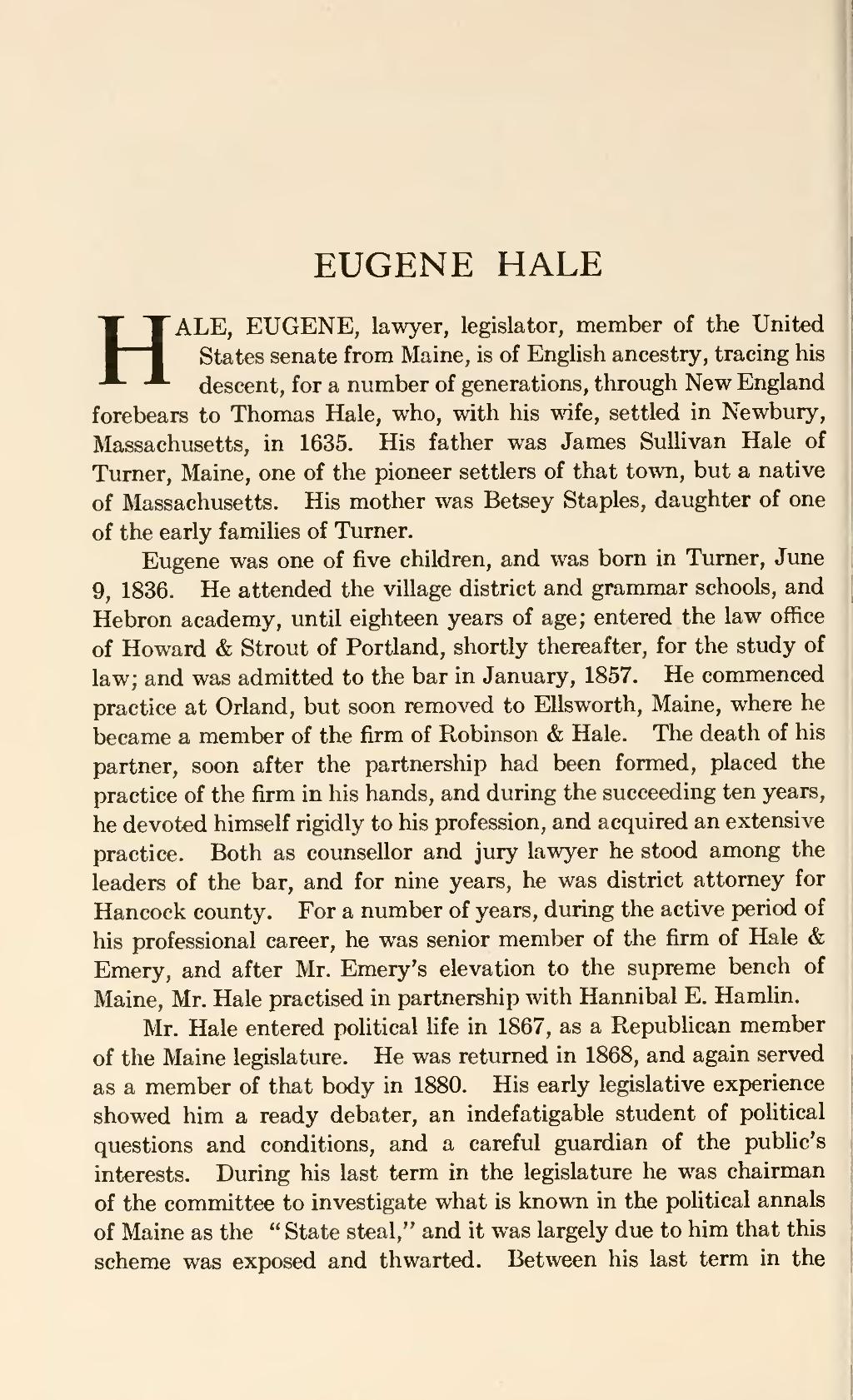EUGENE HALE
HALE, EUGENE, lawyer, legislator, member of the United States senate from Maine, is of English ancestry, tracing his descent, for a number of generations, through New England forebears to Thomas Hale, who, with his wife, settled in Newbury, Massachusetts, in 1635. His father was James Sullivan Hale of Turner, Maine, one of the pioneer settlers of that town, but a native of Massachusetts. His mother was Betsey Staples, daughter of one of the early families of Turner.
Eugene was one of five children, and was born in Turner, June 9, 1836. He attended the village district and grammar schools, and Hebron academy, until eighteen years of age; entered the law office of Howard & Strout of Portland, shortly thereafter, for the study of law; and was admitted to the bar in January, 1857. He commenced practice at Orland, but soon removed to Ellsworth, Maine, where he became a member of the firm of Robinson & Hale. The death of his partner, soon after the partnership had been formed, placed the practice of the firm in his hands, and during the succeeding ten years, he devoted himself rigidly to his profession, and acquired an extensive practice. Both as counsellor and jury lawyer he stood among the leaders of the bar, and for nine years, he was district attorney for Hancock county. For a number of years, during the active period of his professional career, he was senior member of the firm of Hale & Emery, and after Mr. Emery's elevation to the supreme bench of Maine, Mr. Hale practised in partnership with Hannibal E. Hamlin.
Mr. Hale entered political life in 1867, as a Republican member of the Maine legislature. He was returned in 1868, and again served as a member of that body in 1880. His early legislative experience showed him a ready debater, an indefatigable student of political questions and conditions, and a careful guardian of the public's interests. During his last term in the legislature he was chairman of the committee to investigate what is known in the political annals of Maine as the "State steal," and it was largely due to him that this scheme was exposed and thwarted. Between his last term in the
